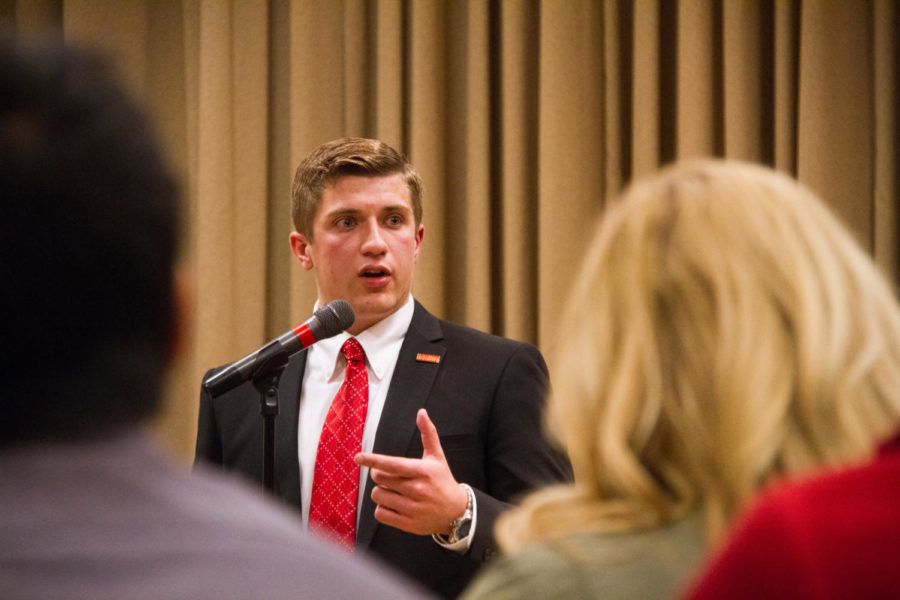Editorial: It’s time for medical amnesty in Iowa
Student Body President Cole Staudt responds to questions during a town hall meeting Nov. 29, 2016 in the Memorial Union.
April 23, 2017
Student Government announced last week that the medical amnesty bill was placed in danger in the Iowa Capitol. The bill was pushed by the Student Government this year after Staudt-West proposed it in their campaign last year. Medical amnesty is a law that “grants intoxicated minors a limited legal immunity when they seek help for themselves or another individual who is in need of immediate medical attention,” according to the Medical Amnesty Initiative.
A large number of young people, college students and others, lose their lives because of alcohol poisoning and related issues every year. Many hesitate to call for help because they fear being subjected to certain legal actions. Medical amnesty aims to save lives by encouraging young people to seek medical attention as a result of underage drinking or something similar. The idea of the medical amnesty legislation is to “eliminate these common fears by guaranteeing a limited immunity to the underage and intoxicated individuals who seek help for themselves or another individual who is in need of immediate medical attention.”
More than 30 states have already implemented medical amnesty policies in the United States. Iowa is on track. In fact, all of the surrounding states except Missouri have passed the law in the past year.
The Student Government at Iowa State introduced the idea of a medical amnesty bill in the Capitol this year. Sen. Brad Zaun managed the bill, and the Student Government, along with others, have lobbied for it.
In March, the bill passed the Iowa Senate unanimously. Former Student Government President Cole Staudt pointed out that the bill is about protecting students, not about partisan politics.
The original proposal introduced by the Student Government cited a study conducted by Cornell University in 2006 regarding the effects of medical amnesty laws. The study found that the number of calls asking for medical help increased by 22 percent after implementing a medical amnesty law. It also found that the policy did not cause any increase of underage alcohol consumption.
The proposal also points out that “the policy was not perceived as an excuse to consume more alcohol and was rather taken for what it was, which is a policy that has the potential to save lives.”
The bill, however, will not be introduced to the House of Representatives until the next legislative cycle. The Student Government called for the student body to keep its support of the bill and contact representatives to show support.

















